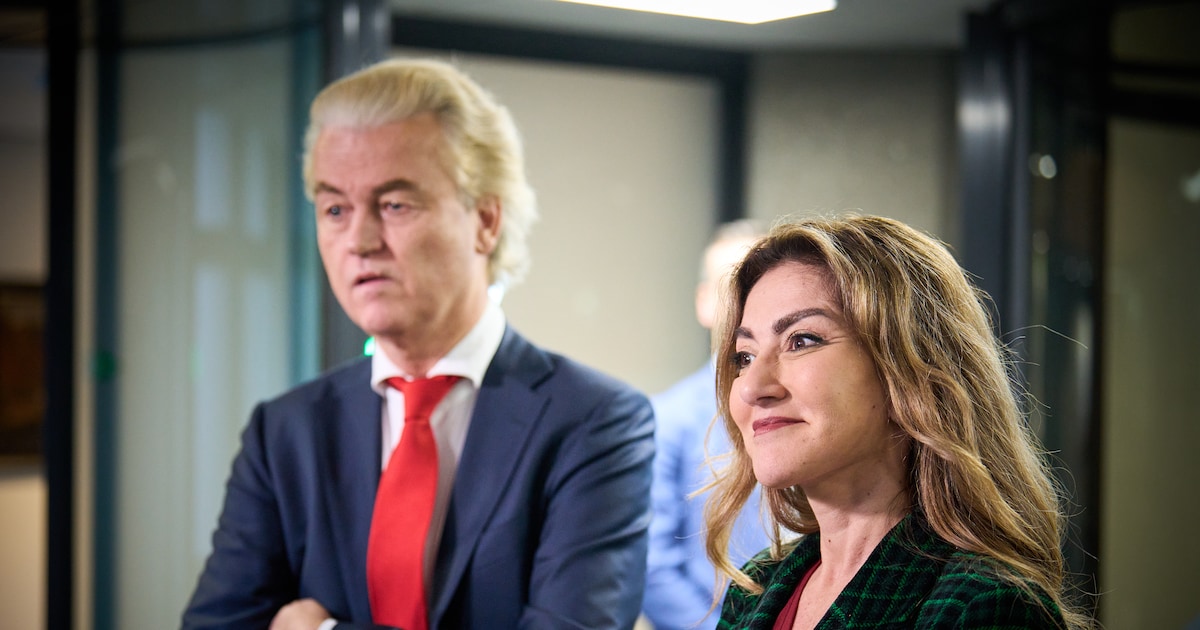
A large group of VVD members do not feel comfortable with the collaboration with the PVV. They do not feel ‘sensitive’ about what is happening with the party now. They have drawn attention to this several times, but they do not feel listened to. “We would like to put the debate back on the agenda,” says Hanne van Aart, mayor of Loon op Zand.
Together with nineteen other concerned VVD members, she sent a letter to the board expressing her concerns and calling for “returning liberalism to the party.” The initiators believe that the party has strayed too far from “its own ideological roots.” They call for a debate on “non-negotiable moral principles.”
Prominent signatories
A total of 1,013 people signed the appeal, including 629 VVD members. Also prominent figures such as former party chairman Frits Korthals Altes, former MP René Leegte, former minister Pieter Winsemius, former MP Frans Weisglas, former campaign leader Jan Driessen and former opinion consultant Henri Kruithof. The progressive VVD MP Eric van der Burg did not sign it. “That did not seem appropriate to me as a member of parliament,” he says.
It is surprising that the initiative of the critical VVD members receives such broad support. During the last VVD party conference there was hardly any discussion about the main agreement reached by the VVD, PVV, NSC and BBB. “Now is the right time to have a conversation,” says Ietje Jacobs, party leader on behalf of the VVD in Groningen. “We have been working on the government programme all summer. We ask ourselves the question: what is justice, what is freedom?”
Don’t stay silent when extremes arise
The members believe that the VVD must continue to reflect critically on its own actions. “Liberals do not remain silent when extremes arise,” the letter says. “Liberals speak out. They stand up for freedom, respect and decency. That is not the case now. We are now uniting. We are making possible behaviour and things that were unthinkable last year in the government of our country.”
Party leader Dilan Yesilgöz broke with the policy of her predecessor Mark Rutte. She refused to cooperate with Geert Wilders’ party for twelve years. Yesilgöz opened the door to cooperation during the election campaign. The result is well known. “It’s primarily about the way in which this collaboration is shaped,” says Jacobs.
Van Aart agrees. He was surprised by the whole debate about the rule of law and the separate section on the rule of law that came about at the initiative of the NSC. “Then I thought: why? I don’t remember the Constitution being open to multiple interpretations.”
Debate on the DNA of the VVD
He misses the debate within the party – about cooperation with the PVV, about the moral and administrative lower limit, in short: about the DNA of the VVD. “Although we have traditionally been a party of debate.” According to Van Aart and Jacobs, the fact that this culture of debate has been relegated to the background is due to past victories.
Under Mark Rutte, the party was doing well. Jacobs: “We are practical and pragmatic. We have been working hard for 14 years. The average VVD member is proud of that. But now we have to talk to each other. For the love of the party.”
Read also: Both supporters and opponents of the new coalition are resisting the VVD conference
VVD members who are in favour of cooperation with the PVV refrain from triumphalism during the party congress. Criticism of the coalition agreement seems, at best, understated outside the conference hall.



